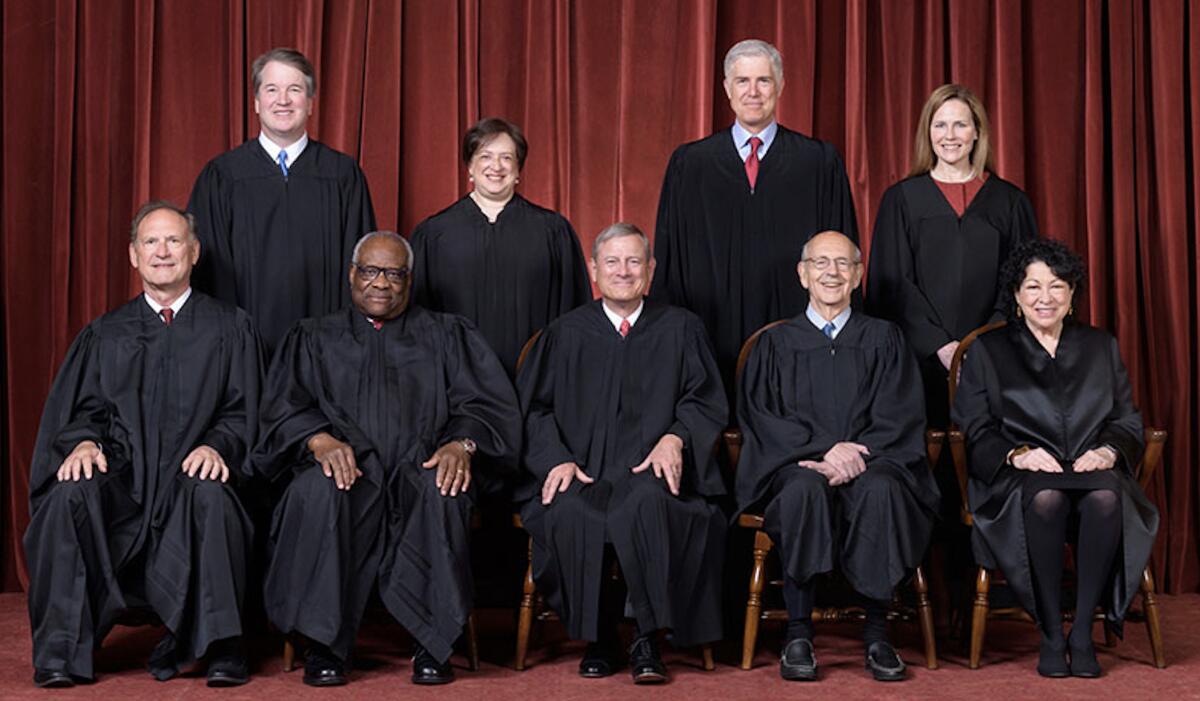Chief Justice Roberts calls for better enforcement of conflict laws involving judges’ stock ownership

WASHINGTON — Federal courts need to do much better at enforcing conflict-of-interest laws that are supposed to prevent judges from deciding cases in which they hold stock, Chief Justice John G. Roberts Jr. said in his year-end report on the judiciary.
He was responding to a report in the Wall Street Journal in September that from 2010 through 2018, federal judges participated in 685 cases involving companies in which they or their spouses held stock. When contacted, many of them said they were unaware of the stock holdings because a money manager handled their investments.
The chief justice said federal law requires judges to recuse themselves from a case in which they have a direct financial interest, no matter how small.
“Let me be crystal clear: the Judiciary takes this matter seriously. We expect judges to adhere to the highest standards, and those judges violated an ethics rule,” he wrote.
“We are duty-bound to strive for 100% compliance because public trust is essential, not incidental, to our function,” he continued. “Individually, judges must be scrupulously attentive to both the letter and spirit of our rules, as most are.”
He said “professed ignorance of the ethics rule” or the failure of computer software designed to prevent such conflicts were no excuse. Most judges rely on a computer program to alert them when a case coming before them includes a company in which they hold stock. Sometimes a relevant company slips by the software if it is a subsidiary of a larger corporation.
Roberts said that may explain some lapses, but not for judges who had multiple violations. For them, “there is a more serious problem of inadequate ethics training.... our ethics training programs need to be more rigorous. That means more class time, webinars, and consultations. But it also requires greater attention to promoting a culture of compliance, even when busy dockets keep judicial calendars full,” he said.
He noted, however, that ethics violations appear to be rare. Of the 2.5 million civil cases handled by federal district courts in the nine years that were examined, he said the 685 violations account for less than three-hundredths of 1%. “That’s a 99.97% compliance rate,” he said.
Moreover, he said the newspaper story did not report that “the judge’s actions in any of those cases — often just routine docket management — actually financially benefited the judge.”
The chief justice said the Administrative Office of the U.S. Courts is working on improving technology and training to deal with the problem.
Judges are not prohibited from owning direct shares of stock. If their shares are held indirectly in mutual funds, they are not required to step aside.
He did not suggest imposing penalties for repeat violators. For the most part, federal judges are responsible for deciding when they should remove themselves from a case.
As chief justice, Roberts serves as the leader of the federal judiciary.
Roberts received the highest job approval rating of 11 U.S. leaders in a Gallup poll taken in early December and released earlier this week, with 60% approving of how he is handling his role.
Only two other leaders received positive job approval ratings from a majority of Americans surveyed: Federal Reserve Chairman Jerome H. Powell (53%) and Dr. Anthony Fauci, director of the National Institute of Allergy and Infectious Diseases and chief medical advisor to President Biden (52%).
Roberts was the only leader who received majority approval from both Republicans (57%) and Democrats (52%).
He fared much better in the poll than elected leaders. Biden was approved by 43%, House Speaker Nancy Pelosi (D-San Francisco) by 40% and Senate GOP leader Mitch McConnell (R-Ky.) by 34%.
More to Read
Get the L.A. Times Politics newsletter
Deeply reported insights into legislation, politics and policy from Sacramento, Washington and beyond. In your inbox three times per week.
You may occasionally receive promotional content from the Los Angeles Times.











